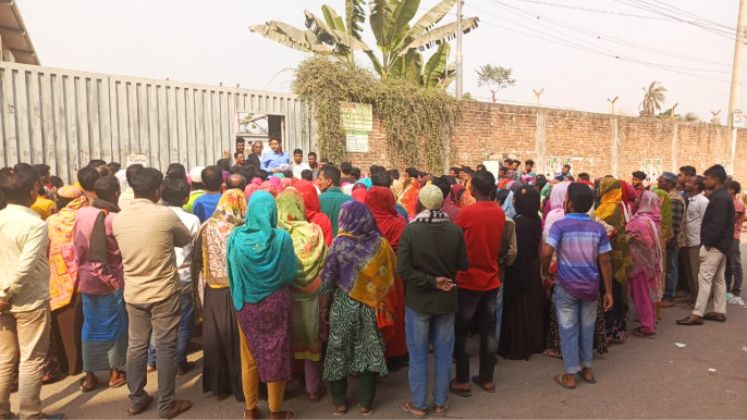
Workers of Apparel Plus Eco Limited, a factory under the TNZ Group, staged a protest on Monday morning in the Gacha area, demanding the payment of two months’ unpaid wages and the reopening of their factory.
The protest began early in the day after workers arrived to find the factory closed, following a public notice issued on Friday announcing an indefinite closure without settling salaries for December and January. Approximately 825 workers were affected by the closure.
Frustrated by the lack of communication and payment, workers gathered at the factory entrance, holding placards. Their demands for immediate action prompted a renewed protest on Monday, starting at 8 am.
In response to the escalating situation, a meeting was convened at 11:30 am in the factory’s conference room. Attendees included factory representative Md Shariful Islam Shahin, directors of TNZ Group, worker representatives, officials from the Bangladesh Garment Manufacturers and Exporters Association (BGMEA), industrial police, and labor department officials.
After nearly three hours of discussions, a tripartite agreement was reached. According to the settlement, unpaid wages for December are to be cleared by 20th February, while January salaries will be paid by 17th March. Additionally, bonus payments are expected to be settled before Eid-ul-Fitr, and the factory’s reopening date will be announced through an official notice. Discussions regarding payment for earned leave are also scheduled.
AKM Johirul Islam, superintendent of Gazipur Industrial Police-2, confirmed that both parties reached an agreement and expressed hope that the factory management would honor their commitments and resume operations promptly.
Shahin, a factory worker, expressed the distress caused by the closure, highlighting a history of delayed payments and intimidation faced by workers advocating for their wages. Efforts to reach factory management for comment were unsuccessful.






